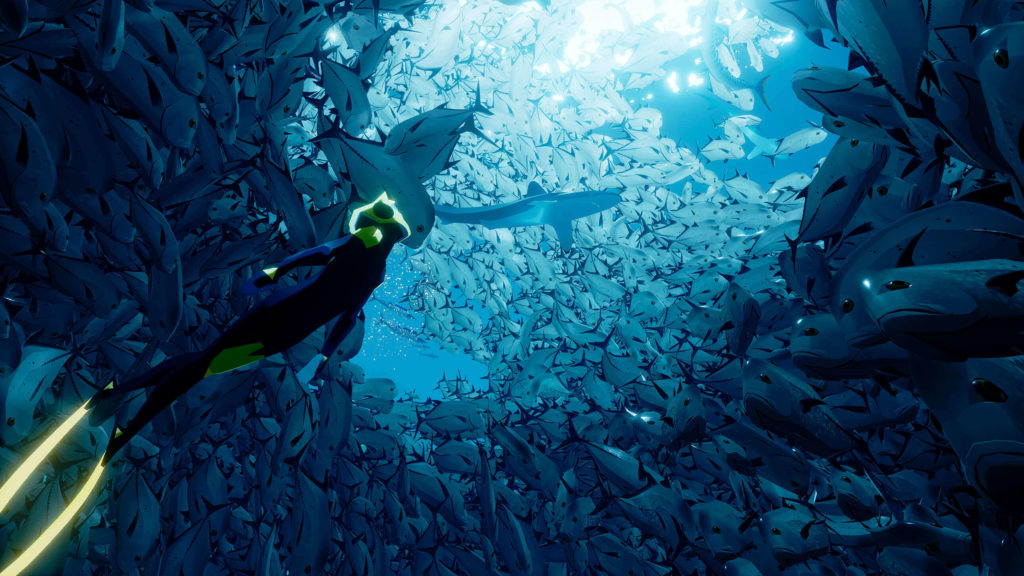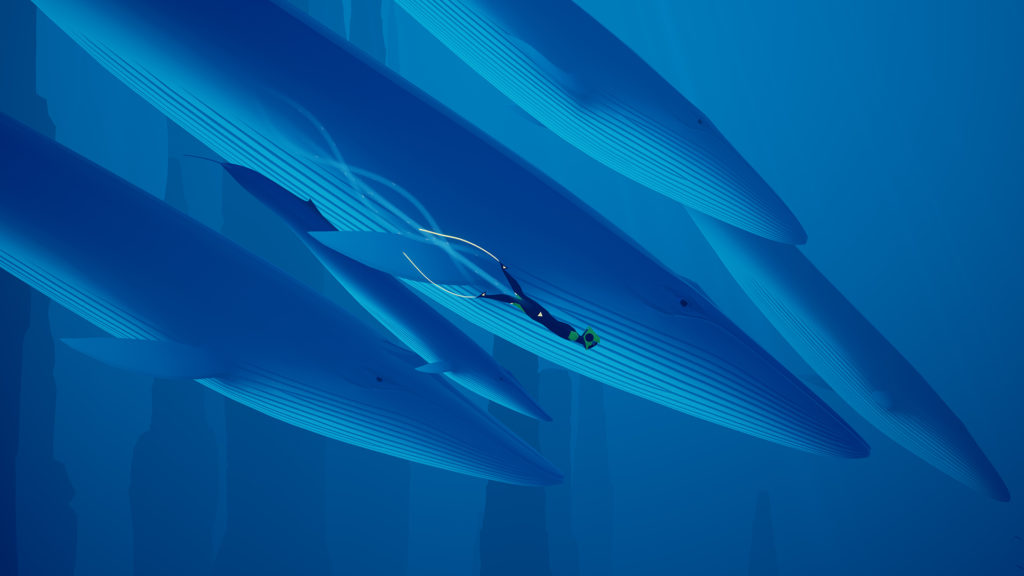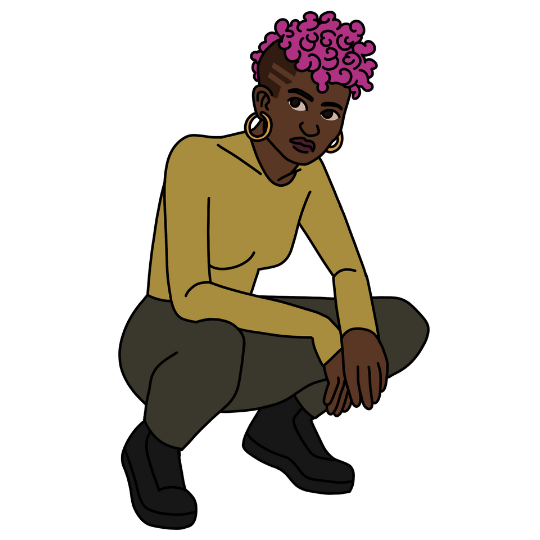How Abzû Practises Mindfulness by Alex Dewing
Posted: 5 Mar 2021Mindfulness: the practise of being present and engaged in the moment, aware of your thoughts and emotions without distraction or judgement.
It’s a technique that’s rooted 2,500 years into the past, yet presently we’re living through a time where many would rather detach from the present and escape to a different world. It makes sense, the world is big and scary enough without the uncertainty of a pandemic. But games can offer us a safe in-between during times like these and can show us how to reframe our mindsets and just…breathe.
Research has suggested that playing video games can benefit our mental health. A study by the Oxford Internet Institute saw that how long we spend playing games is a smaller factor than the kinds of games we play and the experiences we have during them. The games industry, particularly those from indie publishers, has in recent years pushed the boundaries of these experiences, exploring heavier stories and themes. Look at games like That Dragon, Cancer or Florence: these games offer us new ways of working through our experiences of anxiety, depression, loss, etc. Giant Squid Studio’s Abzû does things a little bit differently.

It’s a wordless game, with no clear narrative. Instead, Abzû simply asks you to step into the shoes (or flippers) of a nameless diver as she explores a beautiful, expansive ocean. While it is incredibly soothing, a game perfect for decompressing and honing in on anxiety, the experience of Abzû is uniquely mindful. Through its game mechanics, visuals, and score, it is a game that silently teaches you the power of mindfulness and how you can practise it in everyday life.
Our world can be quite overwhelming: with school, work, family, relationships, and friendships, we’re often left with an endless rush of thoughts and feelings that are hard to get a grip on. Abzû’s world can be quite overwhelming too. The ocean is teeming with life: schools of fish swim circles around you, seaweed floats up to block your path, and every surface is ablaze with colour. As video game players, we’re often trained to want to explore every inch of a map, scared to miss out on anything important (or that longed-for trophy). But Abzû asks us to take a different approach, guiding us to recognise the beauty and danger of this underwater world without letting it distract us.

This is mindfulness at work. The practise isn’t about suppressing our emotions or ignoring our thoughts, it’s about acknowledging them without judgement and without letting them engulf us. The best divers learn quickly that interacting with ocean life is better when it is passive, not active and Abzu’s diver promotes this. Together we watch the world go by but never let it divert us from the path we’re on. It’s structure is reminiscent of noting, a mindfulness technique where you note (or label) thoughts and feelings as ‘thought’ or ‘feeling’. This serves to break the moment of thinking or feeling without undermining them, instead giving us the space to step back with newfound objectivity and peace.
The diver witnesses as much ugliness in the game as she does beauty and yet treats both with the same amount of curiosity and calmness. It’s this inquisitiveness to fully explore the world, that truly makes her an embodiment of mindfulness, a goal we can work towards. She understands that one of the ways we can fully experience life around us is to embrace the positives as openly as the negatives.

By reframing introspection through the ways Abzû reframes exploration, we have the ability to be aware of the present moment more deeply and with an open-mind. I’m sure I’m not the only one who’s gotten lost in the idea that ‘I shouldn’t be feeling this’ or ‘I’m not allowed to think that’. But by letting curiosity lead us, we can reach mindfulness, instead just acknowledging and validating those experiences, recognising they’re taking place without being drowned by them.
To solidify this idea, Abzû’s creators include meditation as a collectible mechanic within the game. Throughout the underwater spaces are ‘Meditation Spots’ that ask you to stop, sit, and breathe. As you do so you have the ability to watch the wildlife around you: no interaction, just quiet observation. In doing so, we once again get the idea that this game isn’t about the endpoint but about the journey getting there, much like the philosophy of mindfulness.

This game came to me at a time when I was really lonely: first year of University, living completely alone, knowing absolutely nobody. I played a lot of games instead, including, you guessed it, Abzû. It took me no time at all to fall in love with the game. It’s sweeping oceanic soundtrack lulled me in and the visuals were breathtaking. As soon as it asked me to just stop and meditate, I realised how reflective a journey this story wanted to take me on. And I let it. For me, Abzû helped me reframe my loneliness and my experience at university in a way that I still rely on today.
By sweeping this practice, this philosophy, into a single two hour game, the creators make it clear that mindfulness is just as accessible and worthwhile as reaching the credits. Because mindfulness can sound daunting. It brings to mind an idea of perfect harmony with oneself and the world, but that isn’t the case. As much as Abzû’s diver embodies a mind-set that we can all work towards, she is an expert in her field, we are not. And there’s nothing wrong in that. Leaning into our present moments can be hard, getting swept up in thoughts and feelings can be easy. But Abzû continually reminds us that it’s about the journey we take, that we can take it at whatever pace we want, and ultimately it’s a dive worth taking.

Alex’s Portfolio
Alex is an entertainment writer and (wannabe) community manager. An avid gamer, cartoon fanatic, and lover of pop culture, she is dedicated to diversity on-and-behind the screen and is the host and producer of video game podcast The Lag.
You can find them on Twitter at @alex_dewing.

